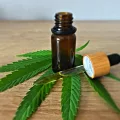Mental health problems affect millions of people worldwide, and anxiety and depression are among the most common.
The traditional treatment of these conditions involves the use of pharmaceutical drugs , which can have unwanted side effects and may not be effective for everyone.
However, a growing body of research suggests that CBD, a non-psychoactive compound found in the cannabis plant, may offer a natural and effective alternative for treating anxiety and depression.
Jump to Section
What is CBD?
Cannabidiol, or CBD, is a chemical compound found in the cannabis plant.
Unlike THC, the psychoactive compound in cannabis that produces a “high,” CBD does not have any psychoactive effects.
In fact, CBD can actually counteract the psychoactive effects of THC.
CBD is believed to work by interacting with the body’s endocannabinoid system (ECS), a complex network of receptors and neurotransmitters that helps regulate various bodily functions, including mood, sleep, and appetite.
How CBD Can Help with Anxiety and Depression
Anxiety and depression are complex conditions that can be caused by a variety of factors, including genetics, environmental factors, and traumatic events.
These conditions can also be difficult to treat, as drugs like antidepressants and anti-anxiety medications can take weeks or even months to take effect and may not work for everyone.
CBD, on the other hand, has been shown to have a number of potential benefits for anxiety and depression.
For example, studies have found that CBD may help to:
- Reduce anxiety: CBD has been shown to have anxiolytic (anti-anxiety) effects in both animal and human studies. In one study, researchers found that CBD reduced anxiety in patients with social anxiety disorder.
- Improve mood: CBD may also have antidepressant effects. In one study, researchers found that CBD had similar effects to antidepressant drugs in animal models of depression.
- Promote relaxation: CBD has been shown to have sedative effects, which may help people with anxiety and insomnia relax and fall asleep more easily.
How to Use CBD for Anxiety and Depression
CBD can be taken in a variety of forms, including oils, capsules, edibles, and topical creams.
The best way to use CBD for anxiety and depression will depend on the individual and their specific symptoms.
For example, someone with anxiety may find that taking CBD oil sublingually (under the tongue) provides quick relief from symptoms, while someone with depression may prefer to take CBD capsules or edibles for longer-lasting effects.
It’s important to note that while CBD is generally considered safe, it can interact with certain medications and may cause side effects like drowsiness, dry mouth, and changes in appetite.
Anyone considering using CBD for anxiety or depression should speak with a healthcare provider first to ensure it is safe and appropriate for them.
Conclusion
CBD is a promising natural alternative for treating anxiety and depression.
While more research is needed to fully understand its effects and potential benefits, early studies suggest that it may be an effective treatment for these conditions.
If you are interested in using CBD for anxiety or depression, it’s important to do your research and speak with a healthcare provider first.
CBD can interact with certain medications and may not be safe for everyone, so it’s important to use it responsibly and under the guidance of a healthcare professional.
FAQs
- Is CBD legal?
Yes, CBD is legal in many countries, including the United States, as long as it is derived from hemp plants and contains less than 0.3% THC. - Can CBD get you high?
No, CBD does not have any psychoactive effects and will not get you high. - How long does it take for CBD to work?
The effects of CBD can vary depending on the individual and the method of consumption. Some people may feel the effects within minutes, while others may take several hours or days to notice any changes. - Can CBD interact with other medications?
Yes, CBD can interact with certain medications, including blood thinners and antipsychotic medications. Anyone considering using CBD with other medications should speak with a healthcare provider first. - What are the side effects of CBD?
CBD is generally considered safe, but it can cause side effects like drowsiness, dry mouth, and changes in appetite. These side effects are typically mild and go away on their own.
I am a CBD enthusiast and creator of DJ Hemp who has made it my mission to enlighten the world about the cannabis industry through thought-provoking literary works.
I have successfully fostered an open-minded, inquisitive community that is eager to learn more about the potential benefits of CBD.
Contact me at [email protected] for assistance.





